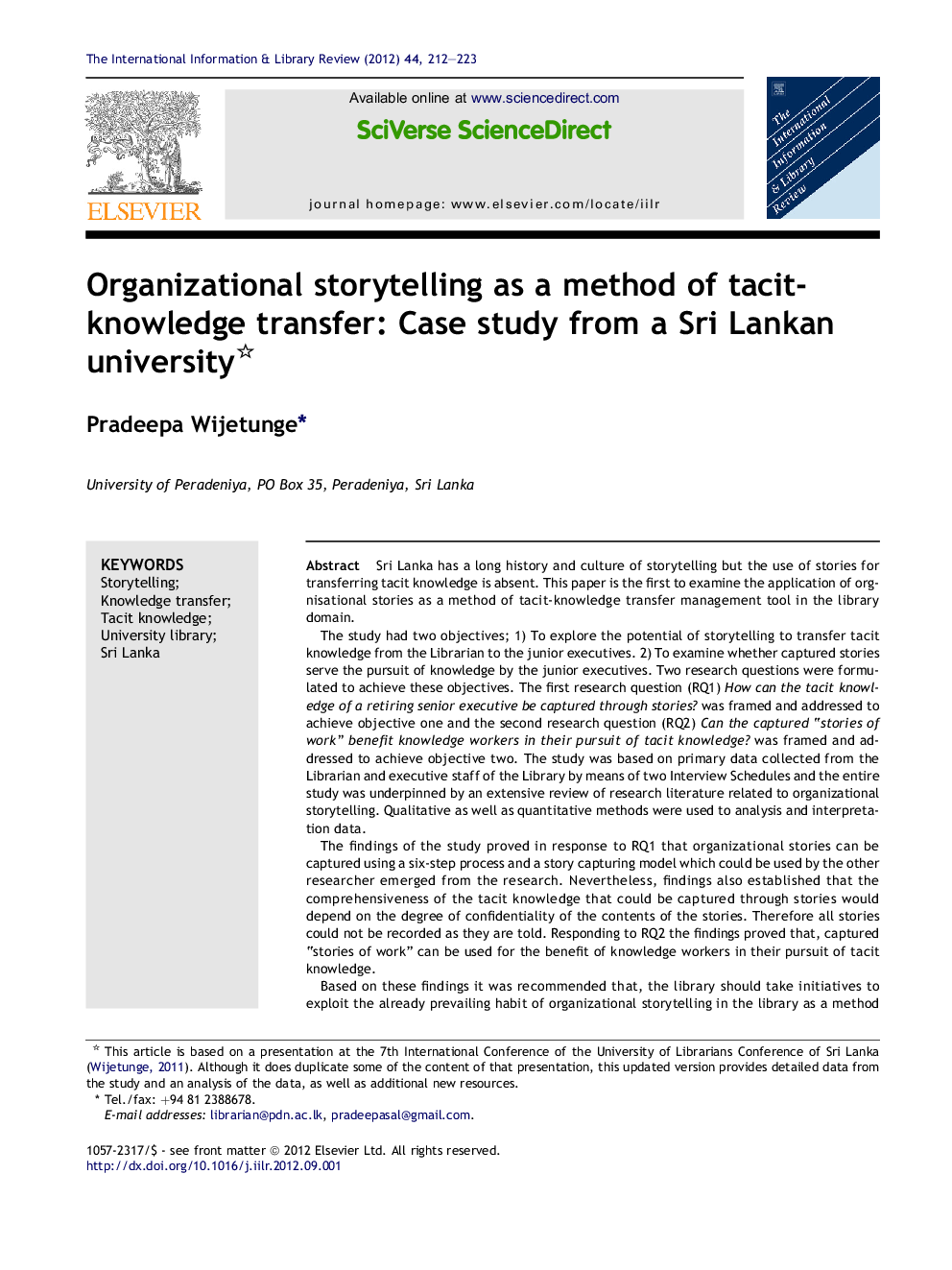| کد مقاله | کد نشریه | سال انتشار | مقاله انگلیسی | نسخه تمام متن |
|---|---|---|---|---|
| 355753 | 619432 | 2012 | 12 صفحه PDF | دانلود رایگان |
Sri Lanka has a long history and culture of storytelling but the use of stories for transferring tacit knowledge is absent. This paper is the first to examine the application of orgnisational stories as a method of tacit-knowledge transfer management tool in the library domain.The study had two objectives; 1) To explore the potential of storytelling to transfer tacit knowledge from the Librarian to the junior executives. 2) To examine whether captured stories serve the pursuit of knowledge by the junior executives. Two research questions were formulated to achieve these objectives. The first research question (RQ1) How can the tacit knowledge of a retiring senior executive be captured through stories? was framed and addressed to achieve objective one and the second research question (RQ2) Can the captured “stories of work” benefit knowledge workers in their pursuit of tacit knowledge? was framed and addressed to achieve objective two. The study was based on primary data collected from the Librarian and executive staff of the Library by means of two Interview Schedules and the entire study was underpinned by an extensive review of research literature related to organizational storytelling. Qualitative as well as quantitative methods were used to analysis and interpretation data.The findings of the study proved in response to RQ1 that organizational stories can be captured using a six-step process and a story capturing model which could be used by the other researcher emerged from the research. Nevertheless, findings also established that the comprehensiveness of the tacit knowledge that could be captured through stories would depend on the degree of confidentiality of the contents of the stories. Therefore all stories could not be recorded as they are told. Responding to RQ2 the findings proved that, captured “stories of work” can be used for the benefit of knowledge workers in their pursuit of tacit knowledge.Based on these findings it was recommended that, the library should take initiatives to exploit the already prevailing habit of organizational storytelling in the library as a method of transferring tacit knowledge in a deliberated manner and for this several activities were recommended.The findings were based only on a single case, in a single organization carried out during a six-month period, within the boundaries of a specific organizational and social culture. Therefore additional case studies would be necessary to test the validity and reliability of the story capturing model.This research is the first of its kind carried out in the library domain of Sri Lanka. Therefore it provides significant insights on which future researchers can build their studies.
► Informal storytelling can be exploited as a mode of tacit-knowledge transfer.
► Organizational stories can transfer tacit knowledge from managers to subordinates.
► Significance of tacit knowledge embodied in the stories depends on their contents.
► Organizational stories can be captured using a six-step process.
► Captured “stories of work” can be used as a source of knowledge.
Journal: The International Information & Library Review - Volume 44, Issue 4, December 2012, Pages 212–223
